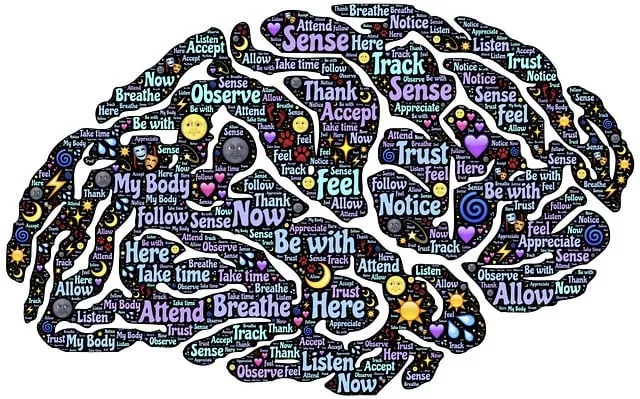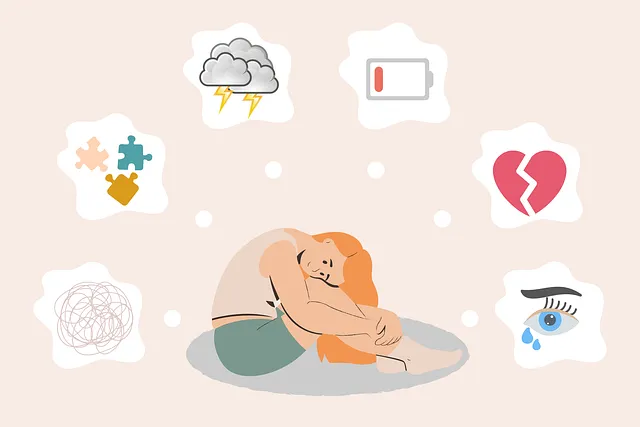The text discusses the significant impact of mental illness stigma, deterring individuals from seeking professional help. It highlights research indicating fear of judgment as a major barrier. The solution involves breaking down stigma through awareness campaigns, educational programs, and self-care initiatives. Kaiser Permanente Broomfield has led the way with its dedicated mental health phone line, crisis intervention guidance for professionals, and community education programs, significantly improving mental wellness outcomes. Accessing resources like this Broomfield mental health hotline normalizes reaching out for help, fostering a supportive community where open mental health conversations thrive.
Mental illness stigma persists, hindering access to vital mental health care. This article explores targeted efforts to reduce this barrier, focusing on strategies like education and community engagement. We delve into the successful initiatives of Kaiser Permanente Broomfield, known for its progressive approach, including their dedicated mental health phone number. Additionally, we examine effective community outreach and the critical role of resources like hotlines in fostering understanding and support for those battling mental illness.
- Understanding Stigma and Its Impact on Mental Health Care
- Kaiser Permanente Broomfield's Approach to Reducing Stigma
- Strategies for Effective Community Engagement
- Resources and Support: The Role of Hotlines in Overcoming Stigma
Understanding Stigma and Its Impact on Mental Health Care

Stigma surrounding mental illness is a significant barrier to individuals seeking help and accessing quality care. It often manifests as negative attitudes, beliefs, and stereotypes about people with mental health conditions, leading to discrimination and social exclusion. This stigma can have profound effects on an individual’s well-being, encouraging feelings of shame, isolation, and fear of judgment, which may deter them from reaching out for support. For instance, a study by Kaiser Permanente in Broomfield revealed that many individuals hesitate to seek professional help due to the fear of being misunderstood or labeled.
Reducing stigma is crucial for fostering an environment where people feel safe to discuss their mental health struggles openly. It involves raising awareness about mental illnesses, challenging societal norms, and promoting empathy and understanding. By breaking down these barriers, individuals are more likely to recognize and address issues early on, preventing escalation and improving overall mental health outcomes. Moreover, initiatives focusing on burnout prevention, emotional regulation techniques, and self-awareness exercises can empower people to manage their mental well-being proactively.
Kaiser Permanente Broomfield's Approach to Reducing Stigma

Kaiser Permanente Broomfield has made significant strides in reducing mental illness stigma through comprehensive initiatives. They offer a dedicated mental health phone line, providing easy access to support and resources for their members. This direct approach ensures that individuals facing mental health challenges can receive immediate assistance and guidance.
Their strategy encompasses various components, including the implementation of Crisis Intervention Guidance to help professionals navigate sensitive situations effectively. Additionally, they emphasize Mental Health Education Programs Design, fostering a culture of understanding and empathy within the community. These efforts contribute to breaking down barriers and promoting early intervention, ultimately leading to improved mental wellness outcomes for all.
Strategies for Effective Community Engagement

Mental illness stigma reduction begins with fostering open conversations within communities. Organizations like Kaiser Permanente play a pivotal role by offering accessible resources such as their mental health phone number in Broomfield, enabling individuals to seek support without barriers. These initiatives help normalize discussions about mental wellness.
Community engagement strategies should focus on education and self-care workshops, promoting activities that boost inner strength development and self-esteem improvement. By empowering residents with knowledge about common mental health issues and coping mechanisms, we can foster a supportive environment where individuals feel comfortable seeking help for depression prevention and early intervention.
Resources and Support: The Role of Hotlines in Overcoming Stigma

In the fight against mental illness stigma, resources and support play a pivotal role. One powerful tool that has proven effective is the mental health hotline. Organizations like Kaiser Permanente, for instance, offer dedicated phone numbers in areas such as Broomfield, providing immediate access to trained professionals who can offer assistance, guidance, and a safe space for individuals struggling with their mental well-being. These hotlines serve as a crucial first step in reducing stigma by normalizing the act of reaching out for help.
By offering confidential conversations, these services foster an environment of compassion cultivation practices, encouraging positive thinking and confidence boosting. They break down barriers, ensuring that people from diverse backgrounds feel empowered to discuss their experiences openly without fear of judgment. The accessibility of such resources has been instrumental in fostering a more supportive community where mental health conversations are normalized, paving the way for broader stigma reduction efforts.
Mental illness stigma reduction is a multifaceted effort that requires understanding, empathy, and community engagement. Organizations like Kaiser Permanente Broomfield are leading the way by implementing innovative approaches to destigmatize mental health issues. Through education, support resources like their mental health phone number in Broomfield, and effective community strategies, we can foster an environment where individuals feel comfortable seeking help without fear of judgment. By continuing to raise awareness and provide accessible support, we move closer to a world where mental well-being is prioritized and nurtured.






